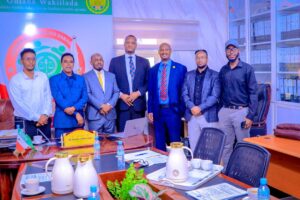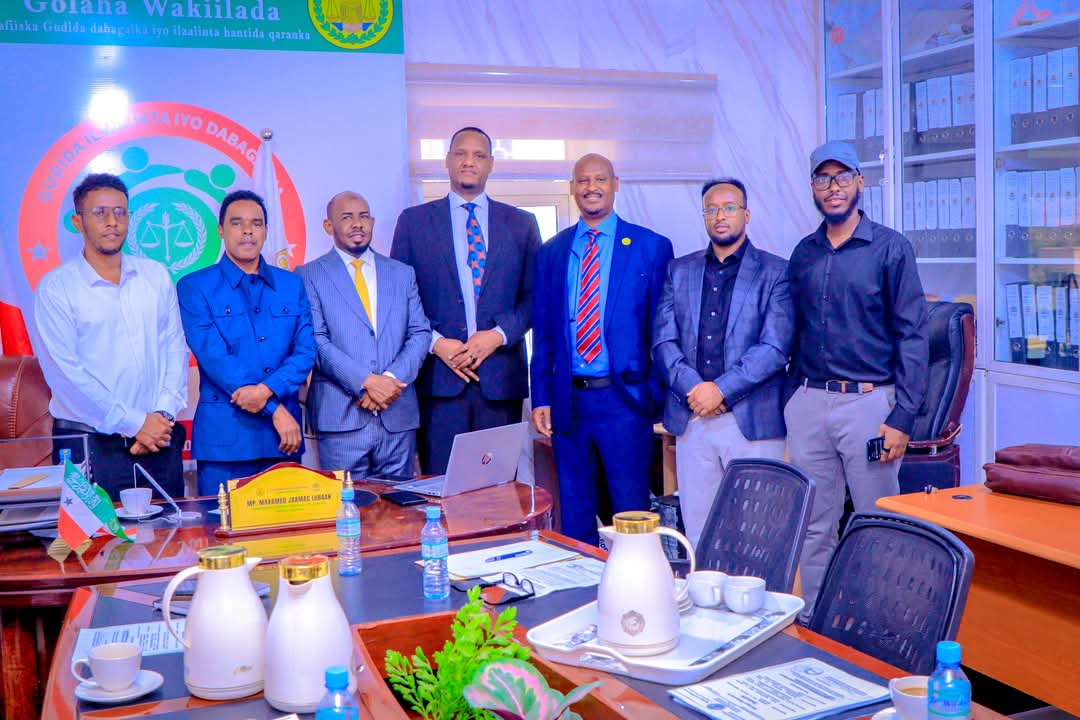A Brief History of Auditing in Somaliland
Following the restoration of its sovereignty in 1991, Somaliland quickly recognized the importance of accountability and good governance in building a stable state. To that end, the National Audit Office (NAO) was re-established in 1993 to ensure the proper management of public resources and to strengthen financial oversight across government institutions.
The NAO was tasked with reporting independently to Parliament, thereby safeguarding transparency and integrity in public sector operations. This mandate was further reinforced by the National Audit Act No. 76/2016, which created the National Audit Commission to oversee human resource management within the audit function, including recruitment, staff development, and disciplinary measures. Together, these reforms established the NAO as a cornerstone institution in Somaliland’s governance framework.
Strengthening Oversight: The Auditor General’s Engagement with Parliament
Hargeisa – In line with its mandate, the Auditor General of Somaliland, Mr. Muse Yusuf Osman (Idigaa), appeared before the Parliamentary Committee on Public Accounts and Asset Oversight of the House of Representatives. The session, chaired by Hon. Mohamed Jama Liban, underscored the growing collaboration between the legislature and the NAO in promoting accountability.
During the briefing, Mr. Osman described his professional background and highlighted reforms implemented since taking office. He stressed the progress made in strengthening financial oversight, improving reporting systems, and increasing transparency within public institutions.
Lawmakers welcomed the engagement, raising questions on the scope of the Auditor General’s responsibilities, institutional capacity, and future priorities. Mr. Osman reaffirmed his office’s commitment to effective oversight and the responsible management of public funds for the benefit of Somaliland’s citizens.
This interaction between Parliament and the Auditor General reflects Somaliland’s determination to institutionalize checks and balances and to reinforce a culture of accountability in governance.
Why Zero Tolerance for Corruption Matters
Somaliland’s commitment to a zero-tolerance policy on corruption is not simply aspirational — it is essential for the nation’s stability, growth, and credibility. Corruption undermines democratic institutions, discourages investment, and erodes public trust. By contrast, transparent financial systems foster donor confidence, encourage private sector growth, and ensure that scarce national resources are allocated to critical areas such as healthcare, education, and infrastructure. By prioritizing accountability, Somaliland communicates to both its citizens and the international community that it is dedicated to creating a credible, corruption-free state based on good governance.
Laasgeel Institute’s Perspective
The Laasgeel Institute for Policy Studies and Research Analysis (LIPS) welcomes the Auditor General’s engagement with Parliament as a milestone in advancing transparency and public accountability. LIPS commends both the Auditor General and the House of Representatives for their cooperative efforts in safeguarding public resources and institutionalizing oversight mechanisms.
As part of its policy stance, LIPS stresses that the fight against corruption is fundamental to:
- Preserving the credibility of Somaliland’s democratic institutions,
- Advancing sustainable development, and
- Strengthening Somaliland’s case for international recognition.
LIPS calls for continued collaboration among oversight bodies, government institutions, civil society, and citizens to ensure that accountability remains at the core of Somaliland’s governance model.
Conclusion
The Auditor General’s briefing before Parliament marks a decisive step in Somaliland’s pursuit of transparency, accountability, and zero tolerance for corruption. By reinforcing oversight and protecting public resources, Somaliland is laying the foundation for effective service delivery, stronger democratic institutions, and greater international credibility.






